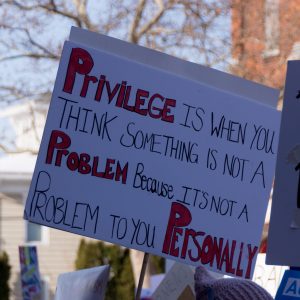 TORONTO — Kurt Rothschild, left, says he was very moved to learn that the World Mizrachi Organization is writing a Torah in his honour.
TORONTO — Kurt Rothschild, left, says he was very moved to learn that the World Mizrachi Organization is writing a Torah in his honour.
The Torah will be donated to a new community in the Halutza region of the Negev, a cause near to Rothschild’s heart
The Toronto philanthropist and chair of the World Mizrachi organization, who spends about four months of the year in Israel, has been to the fledgling town many times. In 2005, he spearheaded a fund to help create new Jewish communities in the Negev for almost 10,000 evacuees from Gaza and the northern West Bank. He brought the idea to UJA Federation of Greater Toronto, which co-ordinated the fund, named for the former Netzarim settlement in Gaza.
In an interview last week at his decidedly non-upscale Toronto office, Rothschild said he was struck by the “courage” and “enterprise” of the former Netzarim residents who are building the town, and by “how much they’ve accomplished in such a short time.”
Rabbi Meir Rosenberg, executive director of Mizrachi Canada, which is responsible for the Sefer Torah project in Toronto, said that a scribe in Israel has already begun the project and it’s expected to be completed this summer.
Any additional funds raised will support educational institutions and social welfare programs in Israel and elsewhere, Rabbi Rosenberg said.
The Torah project is one aspect of Mizrachi’s celebration of Israel’s 60th anniversary this year.
Rothschild, a great-grandfather
who believes the Jewish community’s greatest need is the education of its young people, is being honoured for “his years of work on behalf of world Jewry,” the rabbi said.
He is “in the front, and behind the scenes, in many areas in the community,” Rabbi Rosenberg added.
Rothschild does not seek honour and “looks out for the benefit of each and every person within the wider Jewish community,” he said.
“No matter how many projects he’s currently involved in, the one he takes up at any given moment of the day is the one that has his full attention.”
Rothschild’s dedication to the Jewish community – he sold his national contracting business in 1987 to devote himself to it full-time – can be traced to his modern Orthodox upbringing in Cologne, Germany, and the effects of the Holocaust on his contemporaries and succeeding generations.
“I see in front of me the million Jewish children who were murdered and who would have been founding families and having children of their own and contributing to the future of the Jewish people,” he said with quiet intensity.
After leaving Germany as a teenager, Rothschild completed his high school education in London, England, before going to work in an electrical shop there. He would later study electrical engineering at Queen’s University.
In England, Rothschild was interned with several thousand other young German Jews and sent to Canada, where he spent two years in an internment camp near Fredericton.
Among the other internees was Rabbi Erwin Schild, rabbi emeritus of Adath Israel Congregation and a fellow native of Cologne, whom Rothschild still counts among his friends.
Although he has always identified as modern Orthodox, Rothschild said he feels “very much part of the total Jewish community.
“I feel it is most important that we should stick together, even if we sometimes disagree on matters of ideology.”
Rothschild puts his words into practice, “straddling” – as he puts it – the different parts of the Orthodox community, which in recent years has seen some marked divisions between its modern Orthodox and haredi sectors.
He attributes them in some cases to “excessive language.”
In an attempt to moderate the situation, he sometimes tries to “talk to both sides,” he said. “I think it’s essential there should be an interrelationship of some kind, without sacrificing your beliefs.”
As well, he said he has “no problem” going into communal halls of non-Orthodox synagogues and relating to people there.
However, he is careful to explain that he does not condemn others who feel differently, and also that for Orthodox Jews separation of men and women during prayer is mandated so they can focus on relating to God. “I do pray in Orthodox synagogues,” he clarified.
“People may not agree with what I say, but they do know that I talk with integrity and not trying to gain political points.”
In addition to his involvement with Mizrachi, which dates back some 50 years, Rothschild has served on the boards of institutions including schools, yeshivot and hospitals both here and in Israel.






